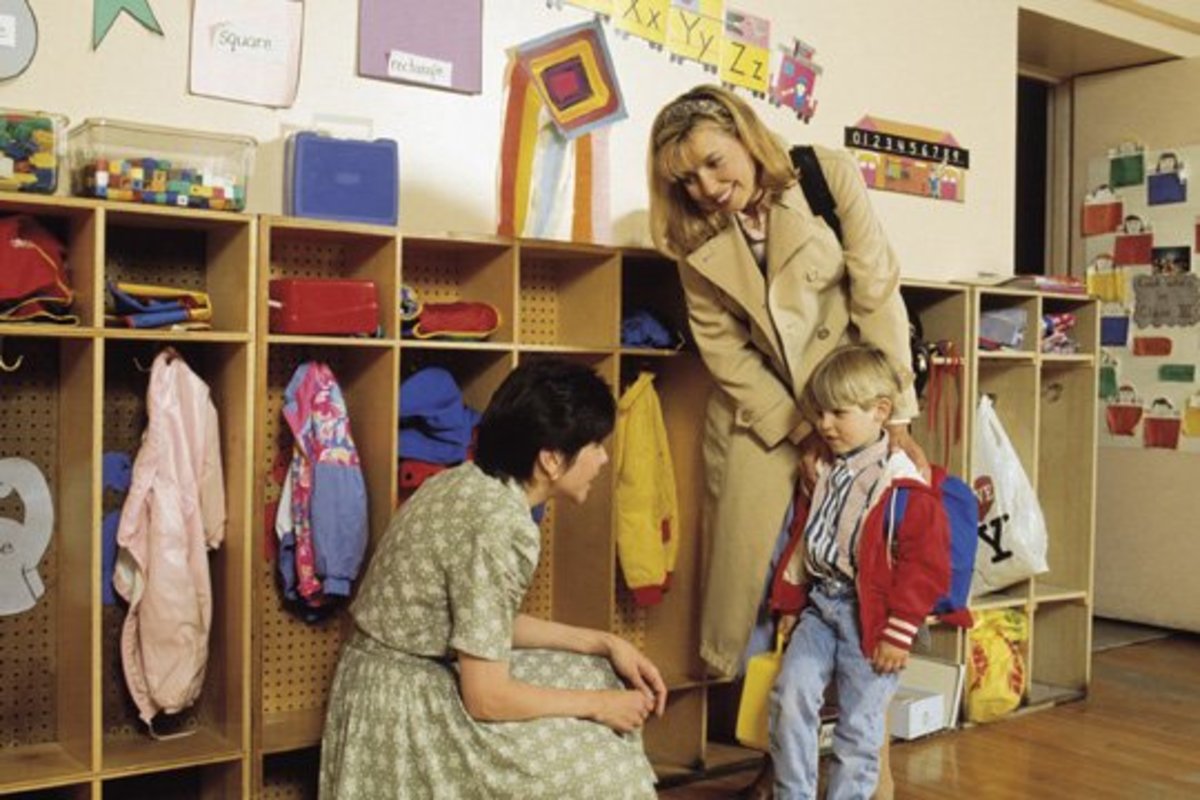How to determine if your child is normal, special need, or exceptional
Are you wondering if your child is "normal", has a "special need" or is "exceptional"? All children are unique in some way and have their own personal styles. But when you have a child that appears to behave or look too differently then your child's peers you may begin to worry. To make the determination if your child requires a professional evaluation from a doctor or therapist consider the general criteria offered below to see if your child's behavior may require a professional evaluation. There is no specific number of criteria which need to be met in order to obtain an evaluation but if you feel that your child meets one or more of these criteria quite strongly then it may be time for you to seek out an evaluation.
CRITERIA ONE--HARMFUL BEHAVIOR: The first, and perhaps most important, question to ask in determining if your child has special needs or is exceptional is the question of harm. Do any behaviors in which your child engages in represent a threat or danger to them self or anyone around them? Of course all children hurt themselves sometimes, and hurt others inadvertently in play sometimes as well. However, what we are looking at here are serious injuries that require medical attention beyond band-aids or very frequent band-aid injuries. If your child meets this basic criteria you may want to look at getting an evaluation from a professional. If your child does not meet this criteria but you still feel that something is not right read further to see if your child meets criteria from the other categories below.
CRITERIA TWO--SUBJECTIVE DISTRESS: Subjective distress is a term used in the medical field which indicates that the individual them self experiences some negative feeling or emotion regarding a behavior or situation. In the case of your child, subjective distress will refer to how your child feels about their own behaviors or situation--not how you or others feel. Does your child feel pain, sadness, or anxiety about any of their behaviors or are just other people around your child disturbed by their behaviors? Perhaps your child is quite content and not suffering distress but a teacher is reporting that your child's behavior is too hyperactive. A truly hyperactive child will feel some subjective distress and a sense of loss of control. If your child is merely energetic and appears happy you may have cause to consider a different educational environment. It may be that your child is incapable of expressing feelings altogether and you will have to use your own judgement regarding what they are feeling. If you see that your child is suffering seek help.
CRITERIA THREE--ANTISOCIAL BEHAVIOR: Antisocial behavior is behavior that is not typically considered acceptable in our society. Examples of antisocial behavior would include use of profanity in public, biting someone, or urinating in public. Antisocial behavior may or may not be willful and may or may not be controllable. As children age they are held to different standards of behaving "appropriately" in public. Some children may merely be "immature" and not be far outside the boundaries of normalcy. To consider if your child's behavior is antisocial as opposed to merely immature ask yourself this question: would a child a few years younger get away with the behavior and be accepted as normal? For example, a two year old child who bites another child would be scolded but no one would be alarmed that something was "wrong" with the child. If a six year old child bites another child the parents involved may feel irritated at the child and call the child "immature" but not think something is "wrong". However, if a eleven year old child bites other children people generally begin to consider that something is "wrong" with that child. Give children a few years of an immaturity window before worrying. If your child is committing behaviors which are illegal, seemingly intentional, severely harmful, or destructive (setting fires), do seek an evaluation at that point.
CRITERIA FOUR--FUNCTIONING: Is my child functioning? The criteria of functionality is an important question to ask. For adults we ask--can you go to work and make a living. For children we ask--is your child playing and going to school. Other functionality questions for children include independent use of the facilities or ability to dress alone. Does your five year old child use the bathroom when needed or are they still wetting their pants during the day? It is "normal" for a two year old to wet their pants during the day, but generally a child of five would feel a full bladder and seek out the facilities. Does your child play with other children at seven or does your seven year old always want to play alone? Can your child learn any material from school or is your child so preoccupied with internal thoughts that no education is possible? The question of functionality is difficult to answer because all children are different and all children develop at different rates. You will need to use some very general norms to compare your child but do so loosely allowing a wide margin of uniqueness for your child. Consider evaluations for functionality if your child is far outside the realms of "normal" for his or her peer group.
CRITERIA FIVE--GLOBAL BEHAVIOR: In discussing global behavior we are asking does your child behave the same in every situation? In other words, does your child only act out in certain situations and not others? Does your child behave perfectly well in your care but act out at school only? If your child has a true special need or exceptionality your child will behave similarly the same across most situations with most people. If you have no complaint against your child's behavior and you are only obtaining complaints from others, consider the source of the complaint. It is a good idea to ask to observe your child's classroom or daycare at random times to obtain a picture of the environment your child might be in when you are not around. Video cameras are installed in some childcare facilities for you to see.
BLACK, WHITE, AND GRAY: There are frequently more gray areas in determining a diagnosis for an excepionality then black and white areas. It is the totality of the clinical picture that is used in making a diagnosis for an exceptionality. If you are considering the idea that your child has some special need or exceptionality it will be very helpful if you keep a journal or log of the behaviors which concern you. Also be sure to obtain some data from caretakers and facilities in which your child attends school. Bring all notes to your appointment.
Click this link for a Wikipedia discussion on the assessment for special needs children.
Here is a link for the US Social Security Disability page, Here is a link for the official UK educational site for special needs children.
- Home - My Unique Child
Detailed description of most exceptionalities and special needs along with articles, videos, and other helpful educational links in helping your special child.








